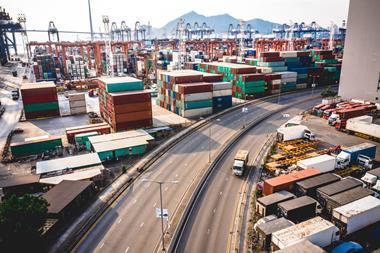Recent shocks mean that supply chain risk management is no longer an operational issue - Ferma workshop
The significant disruptive events of the last three years - including the global pandemic, trade war between the US and China and latterly the War in Ukraine - has caused a major shift in how boards think about supply chains.
This is according to a panel workshop on Day Two of the Ferma Forum 2022 in Copenhagen. A model of global trade that was built after the fall of the Berlin wall and designed for a “world of certainty” is no longer relevant.
Laurent Giordani, co-founder of KYU Associes explained that while supply chain vulnerabilities had been well understood for a long time, what has changed is a broader recognition of the risks and the sheer frequency and severity of disruptions. “What was an operational issue is now a strategic issue for top management,” he said.
From ’just in time’ to ’just in case’
There must be a shift away from ‘just in time’ lean manufacturing models towards ‘just in case’, where excess goods and raw materials are held onto for longer.
This may bring further costs and inflation to the system, but it is one way to become more resilient and build a competitive advantage in uncertain markets, according to Kerry Balenthiran, group manager, Business Risk Consulting, FM Global.
Assessing the sustainability of suppliers has become more important in a world of more frequent disruption, as is reducing over-reliance on particular companies.
Michel Josset, director of insurance and loss control at FORVIA Faurecia, explained how a fairly uneventful fire loss at the warehouse of a supplier became a massive contingent business interruption loss for the European automotive industry.
“It turned out this was a critical supplier and the automotive industry could not produce with no back-up,” he said. “It was tough, but it was a major lesson learned.”
Blog: FERMA 2022 Daily News Summary sponsored by AXA XL
- 1
- 2
- 3
- 4
 Currently reading
Currently readingFerma: How supply chains became a strategic risk
- 5
- 6
- 7
- 8
- 9
- 10
- 11
- 12
- 13
- 14
- 15
- 16
- 17





![20221011_152332[1]](https://d9x705hv73pny.cloudfront.net/Pictures/100x67/1/4/7/93147_20221011_1523321_743215.jpg)




![20221010_112901[1]](https://d9x705hv73pny.cloudfront.net/Pictures/100x67/1/0/0/93100_20221010_1129011_262883.jpg)
![20221010_100820[1]](https://d9x705hv73pny.cloudfront.net/Pictures/100x67/0/9/6/93096_20221010_1008201_549459.jpg)
























No comments yet